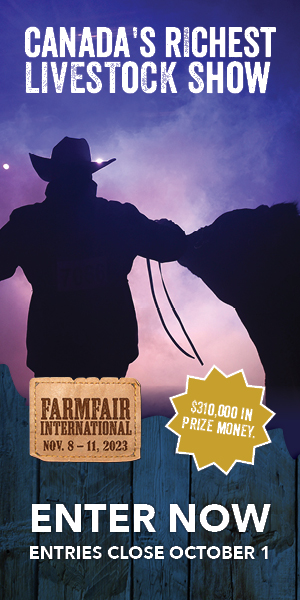AB Direct - Steers
Rail: ---
AB Direct - Heifers
Rail: ---
US Trade- Steers
Rail: 290.00 (IA)
US Trade - Heifers
Rail: 290.00 (IA)
Canadian Dollar
0.02
Priorities for the 44th Parliament and beef’s role in economic recovery
Actively engaging the Government of Canada on the priorities of the Canadian beef industry is a key focus of the Canadian Cattlemen’s Association (CCA).
In early December 2021, Bob Lowe, CCA Past President, and Carley Henniger, President of the Young Cattlemen’s Council (YCC), had the unique opportunity to interview the Federal Agriculture Minister, Marie-Claude Bibeau, the Conservative Agriculture Critic, John Barlow, and the NDP Agriculture Critic, Alistair MacGregor, to find out how their parties’ priorities support and align with the Canadian beef sector.
In Part One of the series, we will explore the following topics: priorities for the 44th Parliament and the role of the beef sector in Canada’s economic recovery.
What are your party’s agriculture priorities for the 44th Parliament?
Minister Bibeau
Agriculture is extremely important in the relaunch of our economy and our food security as well. Everything related to sustainable agriculture is top priority and labour is also a big issue for the sector. We have started negotiating with provincial counterparts for the next policy framework, improving BRM (Business Risk Management), continuing investing in a more sustainable agriculture and making sure that our agriculture is competitive because one goes with the other.
Bob Lowe, President of the Canadian Cattlemen’s Association and Carley Henniger, President of the Young Cattlemen’s Council interviewed the Federal Agriculture Minister, Marie-Claude Bibeau, to find out how the Liberal Government’s priorities align with and support the Canadian beef sector. This interview was taped on December 8, 2021 in Ottawa, Ontario.
John Barlow, MP
A big focus for us is going to be educating, reaching out to our colleagues across the floor and ensuring they realize the role beef producers play in our conservation efforts. I think [beef producers] are the front line of conservation. I don’t think agriculture is a part of the problem. I think you are part of that solution. Getting the government to understand that is a role that we have to play in educating our colleagues throughout the House of Commons, exactly what cattle producers and ranch families have been doing. You set your own targets when it comes to the environment, so I think we should enable you and give you the resources to reach those targets on your own.
Bob Lowe, President of the Canadian Cattlemen’s Association interviewed the Conservative Shadow Minister of Agriculture and Agri-Food and Member of Parliament, John Barlow, to find out how the priorities of the Official Opposition align with and support the Canadian beef sector. This interview was taped on December 6, 2021 in Ottawa, Ontario.
Alistair MacGregor, MP
I would really like to place agriculture at the centre of the environmental and climate change debate that we’re having. I have heard repeatedly from farmers that they are on the front lines of climate change. For too long we have been looking at punitive measures with respect to agriculture on how we will solve climate change. We know that many farms still rely on fossil fuels and we don’t yet have commercially viable alternatives. Agriculture can play an important role in sequestering carbon. I’m a big believer in promoting healthy soil conservation and illustrating to the broader public that through various agricultural techniques, whether how we plant crops or allow cattle to graze in the beautiful grasslands, we have a real potential here to make agriculture one of our greatest tools in fighting climate change.
Bob Lowe, president of the Canadian Cattlemen’s Association interviewed the NDP Agriculture and Agri-Food Critic and Member of Parliament Alistair MacGregor to find out how the New Democratic Party’s priorities align with and support the Canadian beef sector. This interview was taped on December 8, 2021 in Ottawa, Ontario.
What is your party’s plan to include the beef sector in Canada’s economic recovery, including trade and market access opportunities? How will your party help address some of the current trade imbalances and challenges we face?
Minister Bibeau
We want to be sure that we have a sustainable agriculture that is competitive. It really goes together.
Our government is committed to opening new markets. We have signed a good number of free trade agreements and we are continuing to negotiate more agreements. It is important that we open opportunities for you. Signing an agreement is one thing, and then we have to work together to make sure we really get into the markets. It is important to diversify our markets and be sensitive to what the consumers’ needs and what their requests are. We will continue to work together to continue in this direction because last year was very good in terms of opening new markets and increasing our exports.
John Barlow, MP
There are key roles that agriculture can play. As we go through the pandemic, food security is top of mind for everyone so there obviously is a role for agriculture to play. For the beef sector specifically, BRMs will be a large part of that. We want to look at the livestock price insurance program, make it permanent and include Atlantic Canada so that is something we can rely on. We can also look at the livestock tax deferral program that should be based on region and more inclusion of beef producers themselves on making those decisions, like the crop side.
There are great opportunities for the beef sector in Asia. We need to address an agreement with the United Kingdom, whether bringing them into CPTPP, which might be the easiest and best access, because we’ve seen CETA isn’t working and we have a massive trade deficit.
Alistair MacGregor, MP
I think the beef sector is an incredibly important part of the economy. Our agriculture committee in the previous parliament took a close look at Canada’s processing capacity and made a number of recommendations for how Ottawa can make strategic investments through tools like the local food infrastructure fund. Having resiliency in the system and making sure we have back-ups to future problems that might exist will not only help beef producers weather future storms but I think it will allow producers to recover in a much faster way and take advantage of the opportunities that are out there.
It is really hard to peer into a crystal ball with all the [trade] challenges we see around the world. There is always a strong case to be made for more diversification. We should be beefing up our staffing in Canadian embassies overseas and making sure we understand the local markets and find new export markets. That will help us weather future storms. Building those personal relationships are a huge part of successful negotiations.
Note, the responses were transcribed and have been shortened for length. If you are interested in watching full interviews, please visit the Canadian Cattlemen’s Association’s YouTube channel, which also houses the French interview with Bloc Quebecois Agriculture Critic, Yves Perron.
This article was first published in Volume 2 Issue 2 of ABP Magazine (April 2022). Watch for more digital content from the magazine on ABP Daily.
Leave a Comment
Add abpdaily.com to your home screen
Tap the menu button next to the address bar or at the bottom of your browser.
Select ‘Install’ or ‘Add to Homescreen’ to stay connected.



Share this article on
About the Author
The CCA is the national voice for Canada’s beef cattle industry representing 55,000 beef farms and feedlots. Visit www.cattle.ca